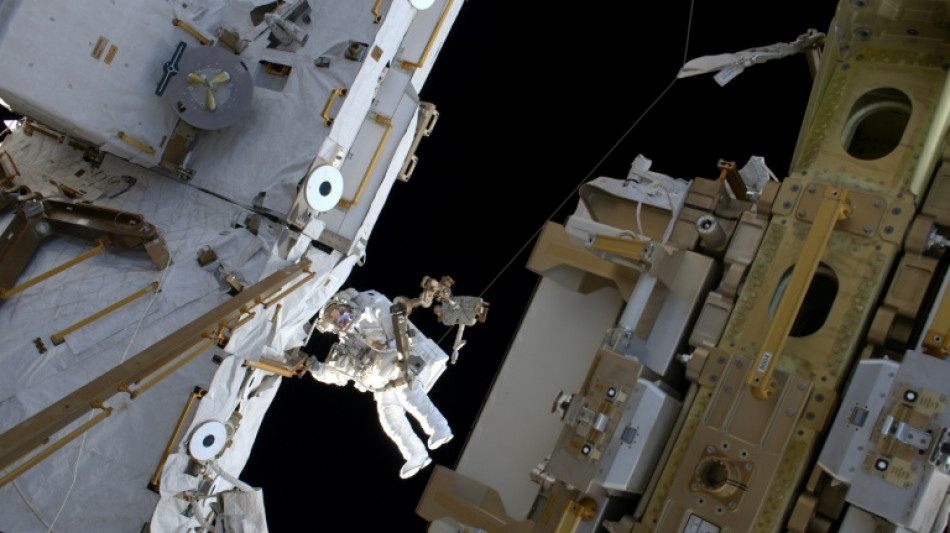
-
 Latin America fondly farewells its first pontiff
Latin America fondly farewells its first pontiff
-
'I wanted it to work': Ukrainians disappointed by Easter truce

-
 Harvard sues Trump over US federal funding cuts
Harvard sues Trump over US federal funding cuts
-
'One isn't born a saint': School nuns remember Pope Francis as a boy

-
 Battling Forest see off Spurs to boost Champions League hopes
Battling Forest see off Spurs to boost Champions League hopes
-
'I don't miss tennis' says Nadal

-
 Biles 'not so sure' about competing at Los Angeles Olympics
Biles 'not so sure' about competing at Los Angeles Olympics
-
Gang-ravaged Haiti nearing 'point of no return', UN warns
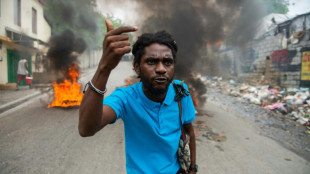
-
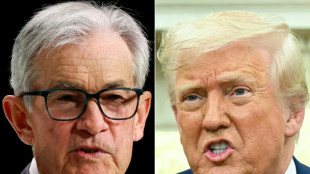 US assets slump again as Trump sharpens attack on Fed chief
US assets slump again as Trump sharpens attack on Fed chief
-
Forest see off Spurs to boost Champions League hopes

-
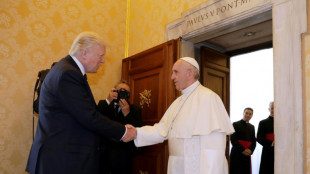 Trump says Pope Francis 'loved the world,' will attend funeral
Trump says Pope Francis 'loved the world,' will attend funeral
-
Oscar voters required to view all films before casting ballots

-
 Bucks' Lillard upgraded to 'questionable' for game 2 v Pacers
Bucks' Lillard upgraded to 'questionable' for game 2 v Pacers
-
Duplantis and Biles win Laureus World Sports Awards

-
 US urges curb of Google's search dominance as AI looms
US urges curb of Google's search dominance as AI looms
-
The Pope with 'two left feet' who loved the 'beautiful game'
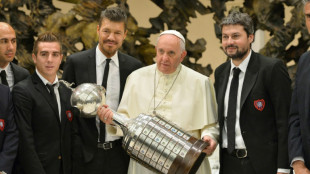
-
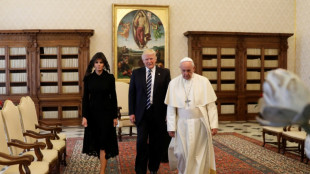 With Pope Francis death, Trump loses top moral critic
With Pope Francis death, Trump loses top moral critic
-
Mourning Americans contrast Trump approach to late Pope Francis
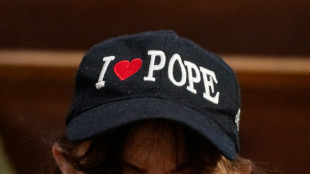
-
 Leeds and Burnley promoted to Premier League
Leeds and Burnley promoted to Premier League
-
Racist gunman jailed for life over US supermarket massacre
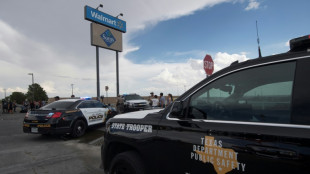
-
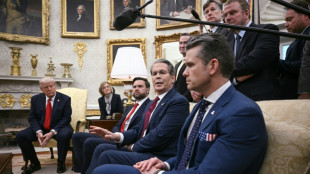 Trump backs Pentagon chief despite new Signal chat scandal
Trump backs Pentagon chief despite new Signal chat scandal
-
Macron vows to step up reconstruction in cyclone-hit Mayotte
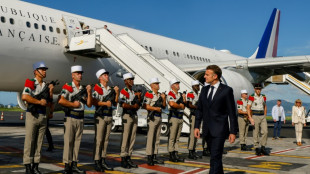
-
 Gill, Sudharsan help toppers Gujarat boss Kolkata in IPL
Gill, Sudharsan help toppers Gujarat boss Kolkata in IPL
-
Messi, San Lorenzo bid farewell to football fan Pope Francis

-
 Leeds on brink of Premier League promotion after smashing Stoke
Leeds on brink of Premier League promotion after smashing Stoke
-
In Lourdes, Catholic pilgrims mourn the 'pope of the poor'
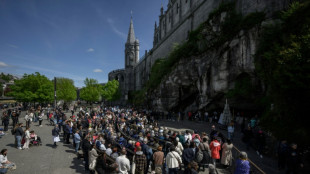
-
 Korir wins men's Boston Marathon, Lokedi upstages Obiri
Korir wins men's Boston Marathon, Lokedi upstages Obiri
-
China's CATL launches new EV sodium battery

-
 Korir wins Boston Marathon, Lokedi upstages Obiri
Korir wins Boston Marathon, Lokedi upstages Obiri
-
Francis, a pope for the internet age
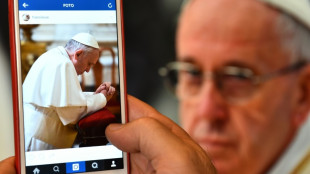
-
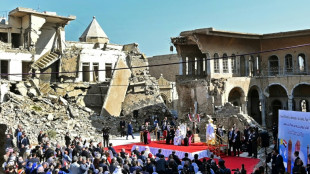 Iraq's top Shiite cleric says Pope Francis sought peace
Iraq's top Shiite cleric says Pope Francis sought peace
-
Mourners flock to world's churches to grieve Pope Francis
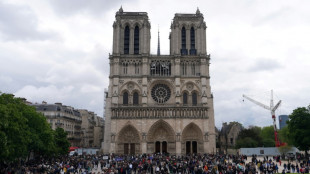
-
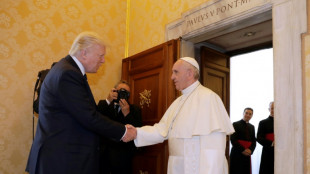 Trump says Pope Francis 'loved the world'
Trump says Pope Francis 'loved the world'
-
Sri Lanka recalls Pope Francis' compassion on Easter bombing anniversary
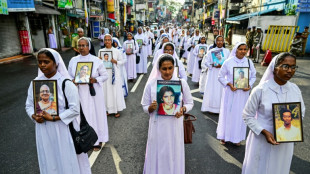
-
 Pope Francis inspired IOC president Bach to create refugee team
Pope Francis inspired IOC president Bach to create refugee team
-
Alexander-Arnold will be remembered for 'good things' at Liverpool: Van Dijk

-
 US VP Vance meets Indian PM Modi for tough talks on trade
US VP Vance meets Indian PM Modi for tough talks on trade
-
Pentagon chief dismisses reports he shared military info with wife

-
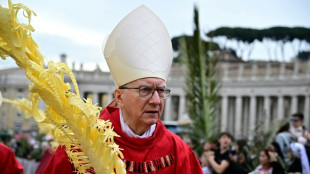 15 potential successors to Pope Francis
15 potential successors to Pope Francis
-
The papabili - 15 potential successors to Pope Francis
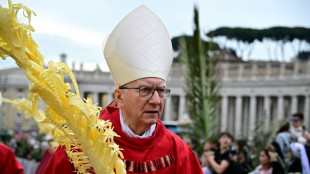
-
 Zhao sets up all-China clash after beating 2024 world snooker finalist Jones
Zhao sets up all-China clash after beating 2024 world snooker finalist Jones
-
Ostapenko stuns Sabalenka to win Stuttgart title

-
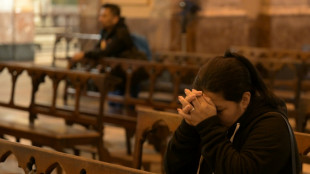 Argentina mourns loss of papal son
Argentina mourns loss of papal son
-
African leaders praise Pope Francis's 'legacy of compassion'
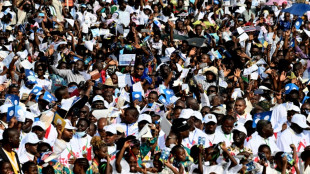
-
 Mehidy's five wickets help Bangladesh fight back in first Zimbabwe Test
Mehidy's five wickets help Bangladesh fight back in first Zimbabwe Test
-
'The voice of god': Filipinos wrestle with death of Pope Francis
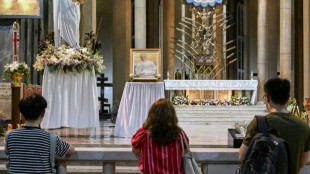
-
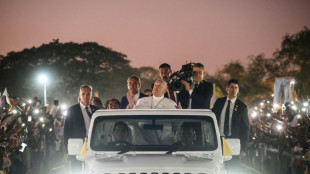 Prayers, disbelief in East Timor after Pope Francis death
Prayers, disbelief in East Timor after Pope Francis death
-
Real Madrid hold minute's silence as La Liga mourns Pope Francis
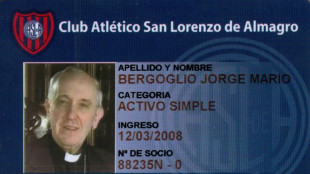
-
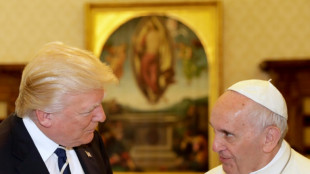 World leaders pay tribute to Pope Francis, dead at 88
World leaders pay tribute to Pope Francis, dead at 88
-
World leaders react to the death of Pope Francis
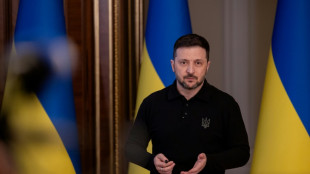

Lost in space: Astronauts struggle to regain bone density
Astronauts lose decades' worth of bone mass in space that many do not recover even after a year back on Earth, researchers said Thursday, warning that it could be a "big concern" for future missions to Mars.
Previous research has shown astronauts lose between one to two percent of bone density for every month spent in space, as the lack of gravity takes the pressure off their legs when it comes to standing and walking.
To find out how astronauts recover once their feet are back on the ground, a new study scanned the wrists and ankles of 17 astronauts before, during and after a stay on the International Space Station.
The bone density lost by astronauts was equivalent to how much they would shed in several decades if they were back on Earth, said study co-author Steven Boyd of Canada's University of Calgary and director of the McCaig Institute for Bone and Joint Health.
The researchers found that the shinbone density of nine of the astronauts had not fully recovered after a year on Earth -- and were still lacking around a decade's worth of bone mass.
The astronauts who went on the longest missions, which ranged from four to seven months on the ISS, were the slowest to recover.
"The longer you spend in space, the more bone you lose," Boyd told AFP.
Boyd said it is a "big concern" for planned for future missions to Mars, which could see astronauts spend years in space.
"Will it continue to get worse over time or not? We don't know," he said.
"It's possible we hit a steady state after a while, or it's possible that we continue to lose bone. But I can't imagine that we'd continue to lose it until there's nothing left."
A 2020 modelling study predicted that over a three-year spaceflight to Mars, 33 percent of astronauts would be at risk of osteoporosis.
Boyd said some answers could come from research currently being carried out on astronauts who spent at least a year onboard the ISS.
Guillemette Gauquelin-Koch, the head of medicine research at France's CNES space agency, said that the weightlessness experienced in space is "most drastic physical inactivity there is".
"Even with two hours of sport a day, it is like you are bedridden for the other 22 hours," said the doctor, who was not part of the study.
"It will not be easy for the crew to set foot on Martian soil when they arrive -- it's very disabling."
- 'The silent disease' -
The new study, which was published in Scientific Reports, also showed how spaceflight alters the structure of bones themselves.
Boyd said that if you thought of a body's bones like the Eiffel Tower, it would as if some of the connecting metal rods that hold the structure up were lost.
"And when we return to Earth, we thicken up what's remaining, but we don't actually create new rods," he said.
Some exercises are better for retaining bone mass than others, the study found.
Deadlifting proved significantly more effective than running or cycling, it said, suggesting more heavy lower-body exercises in the future.
But the astronauts -- who are mostly fit and in their 40s -- did not tend to notice the drastic bone loss, Boyd said, pointing out that the Earth-bound equivalent osteoporosis is known as "the silent disease".
Canadian astronaut Robert Thirsk, who has spent the most time in space, said that for him bones and muscles took the longest to recover after spaceflight.
"But within a day of landing, I felt comfortable again as an Earthling," he said in a statement accompanying the research.
A.Gasser--BTB




